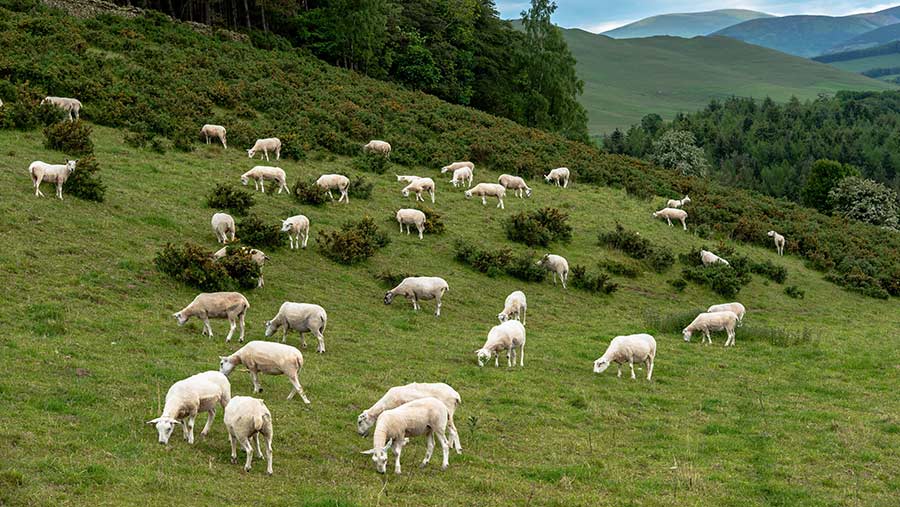Firm funding assurance beyond 2024 NFUS number one priority
 © Ilene-Perlman/Alamy Stock Photo
© Ilene-Perlman/Alamy Stock Photo NFU Scotland is seeking assurances that governments in Westminster and Holyrood will continue to fund farming to at least the same levels beyond the life of the current UK parliament.
NFUS director of policy Jonnie Hall said getting future funding commitments from both governments was now the union’s “number one priority” for Scottish farmers and crofters.
Agricultural fuel, feed, fertiliser and energy costs have risen significantly in recent months, while output prices have “remained stable at best”, Mr Hall noted.
See also: NFU Scotland demands more ‘farmer friendly’ forestry grants
NFUS says the Treasury must recognise the growing financial pressures farmers are facing when allocating the future budget for the agricultural sector – currently about £3.5bn for the UK each year, of which Scotland receives about £620m.
“We are calling for both the UK and Scottish governments to commit to multi-annual funding beyond the life of this current parliament,” Mr Hall said.
“Currently, we have got commitments to maintain the budget for agriculture until a general election before 2025. But what happens after that is a huge uncertainty and that is undermining confidence.”
In February, the Scottish government announced a route map for the delivery of future agricultural policy in Scotland based on a four-tier model, but details over funding allocations remain unclear.
NFUS says it is vital that 80% of future farm funding is allocated to direct support in tiers 1 and 2 since these elements of support will be expected to do the “heavy lifting” to meet the triple challenge of food, climate and biodiversity.
“Livestock producers in Scotland’s less favoured areas are significantly more dependent than any other sector on receiving those support payments,” said Mr Hall.
Asked whether this risked the potential of creating un unlevel playing field with farmers in England, Mr Hall said: “We absolutely understand the concerns of English farmers, but given the agricultural profile of Scotland it’s critical that new conditional but direct support continues to underpin the viability of farm businesses so they can deliver the outcomes required.”
Scottish farmers and crofters are “up for the challenge” of delivering on government objectives for food production, climate change and biodiversity, Mr Hall said.
But there must be recognition from governments that agriculture should continue to receive an appropriate level of support to deliver on these commitments, he added.
